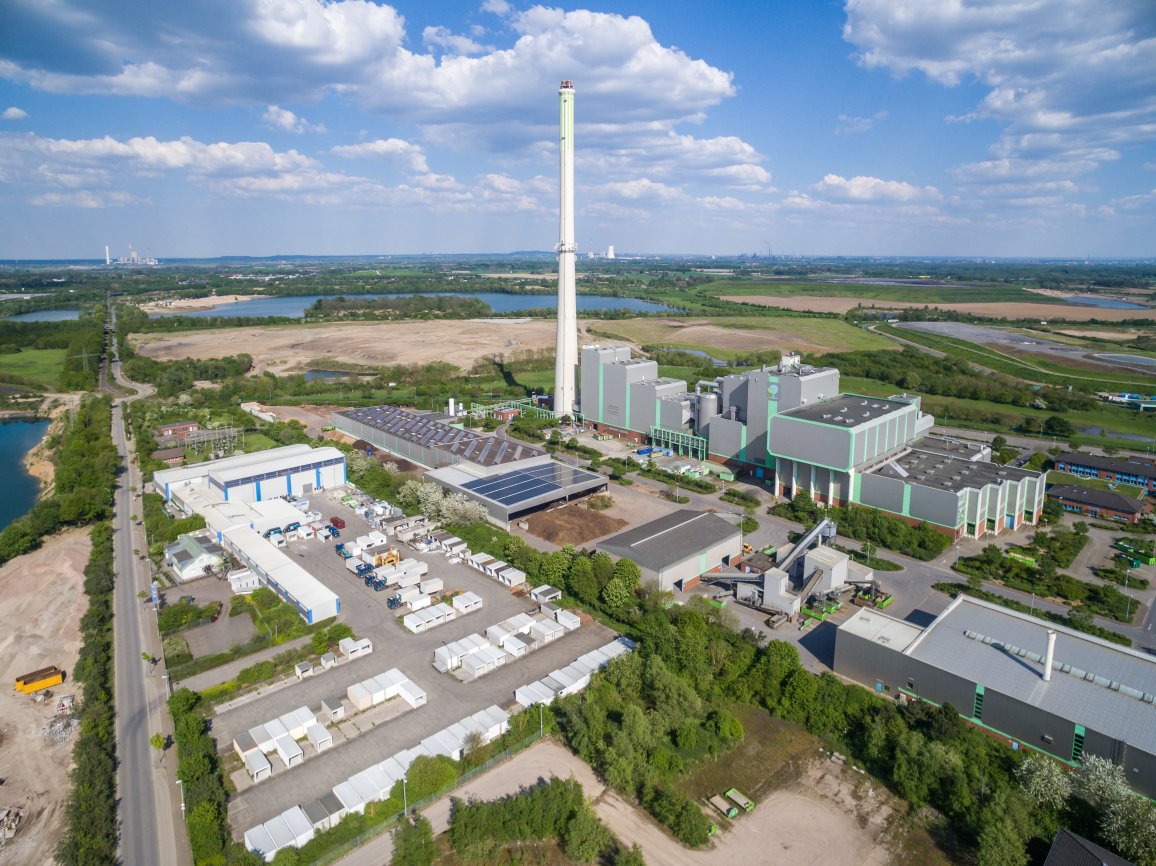Disposing of waste and gaining energy
At the end of 2023, around 170 countries discussed a global agreement to combat plastic waste at the UN Environment Conference in Nairobi. The main aim was to reduce global plastic production. However, there were some voices promoting thermal recovery as a solution. And this idea makes sense in the case of waste that is not, or is no longer, recyclable.

In particular, emerging countries that want to combine significant economic growth with environmental protection need flexible materials, stable energy supply and effective waste management systems. Plastic can be the solution to all of these. Once plastics have lost too much of their quality or have become too soiled after repeated use, thermal recovery can transform the valuable material back into energy. This also applies to waste materials and residues formed during the sorting and recycling processes.
Waste-to-energy: waste as a source of heat and electricity
Combining waste disposal and energy generation in a single step through thermal recovery is a sensible approach. Particularly in the case of plastic waste that cannot or can no longer be recycled in conventional ways. For example, one kilogram of packaging plastic (PET/PE) has a calorific value of between 25,000 and 46,000 kilojoules, compared to around 18,000 kilojoules for wood pellets [1]. This is additional energy potential produced as part of the effective disposal of plastic waste.
Thermal recovery is already in use throughout the world: around 2,200 plants process approximately 255 million tonnes of waste per year [12]. These are typically large-scale plants that primarily dispose of municipal waste in order to reduce the burden on landfills. As a secondary benefit, part of this waste also supplies additional energy through combined heat and power generation. However, the approval and planning procedures necessary to commission plants of this scale are very time-consuming. There are also long construction times and high operating costs to take into account. More compact types of plant are therefore an alternative worth looking into.
Local solution: small-scale thermal recovery
Background: Energy-rich plastic waste, in particular, is well suited to thermal recovery in small, decentralised plants designed to supply energy to individual or local consumers. Unlike large-scale plants, smaller power plants focus exclusively on high-calorific plastic waste in an effort to achieve high energy yields. Due to the specific way in which they are used, small-scale plants also have a simplified design and efficient filtration systems, meaning shorter construction times and lower investment costs.
These smaller plants can be operated economically with a corresponding degree of energy utilisation. Thermal recovery also eliminates the time-consuming process of pre-sorting plastic waste. Another benefit is the close proximity between the source of waste and the recycling plant, saving on long distances and reducing transportation costs. This is also documented in the study ‘Kleinanlagen zur energetischen Verwertung von Abfällen’ (Small-scale plants for energy recovery from waste) by the Karlsruhe Research Centre [3].
Decentralised small-scale plants can be used to adapt supply and disposal to local needs. Developing and emerging countries could organise waste disposal and energy supply directly on site, which would benefit their growth dynamic and help towards environmental protection.
Efficient, clean, popular
Controlled thermal recovery is now considered to be environmentally friendly thanks to the introduction of high-performance filters and strict limits. Even CO2 can now be captured, stored or used as a resource in the chemical industry. In addition, new technologies are constantly improving energy efficiency and life cycle assessments.
With this in mind, the use of thermal recovery to dispose of plastic waste that can no longer be recycled as well as non-recyclable residual plastic is an innovative idea. The expansion of specific small-scale plant technology therefore needs to be advanced. Thermal recovery could be an even more popular solution in the future thanks to the potential use of mobile small-scale power plants.
[1] https://en.wikipedia.org/wiki/Heat_of_combustion
[2] https://en.wikipedia.org/wiki/Incineration
[3] https://publikationen.bibliothek.kit.edu/270046634/3813868
Do you like our texts? Perhaps even so much that you want to use them in your own media? Then please get in touch with us beforehand!
